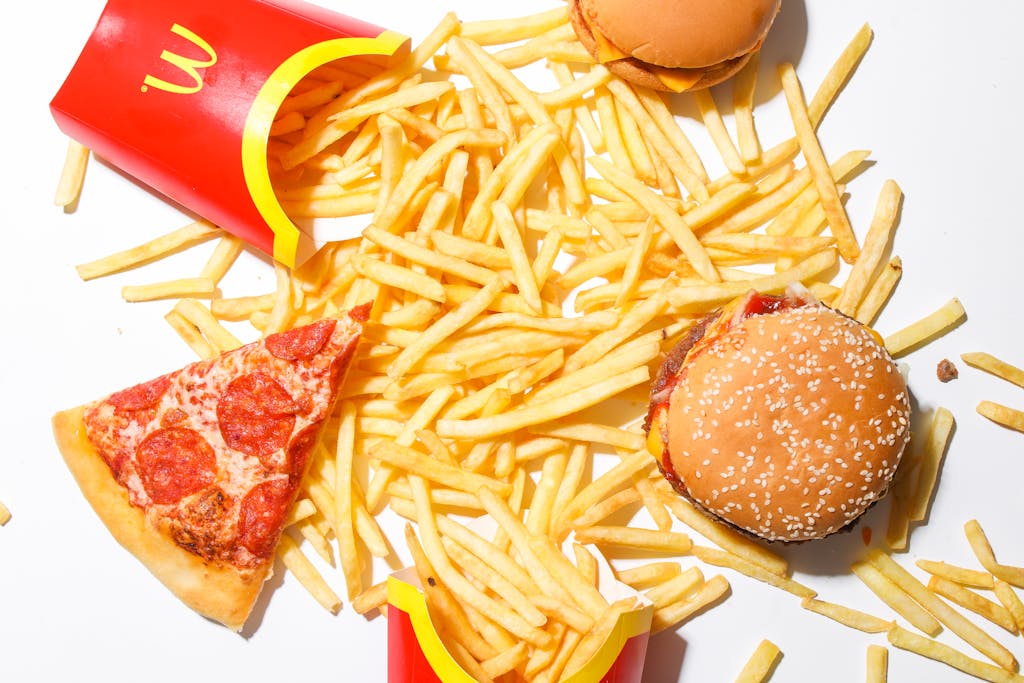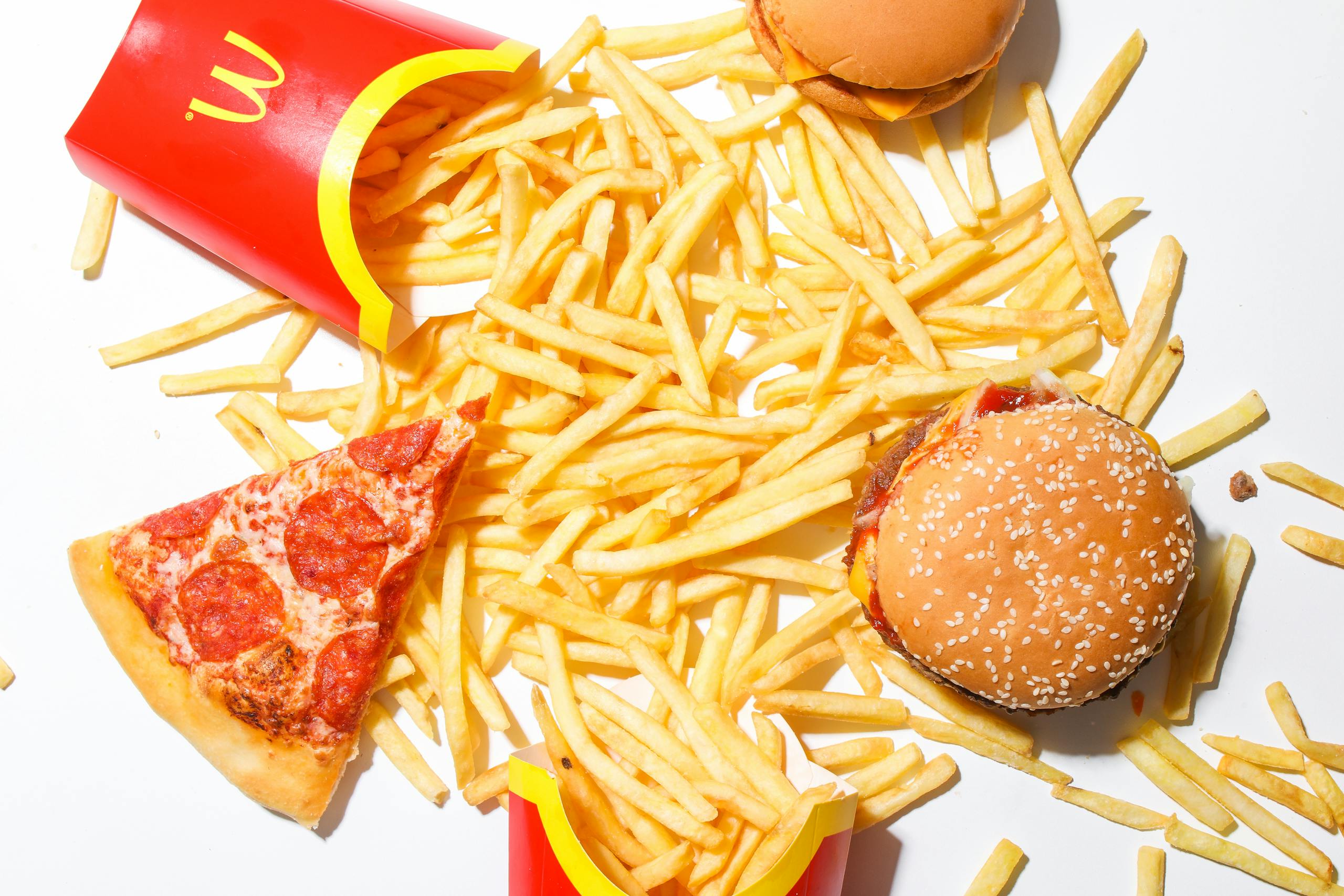Why Processed Foods Make Losing Weight Harder

Losing weight can often feel like an uphill battle, and one of the significant obstacles many face is the prevalence of processed foods in our diets. While these convenient options are readily available, they come with a range of drawbacks that can complicate weight loss efforts. In this article, we’ll explore why processed foods can make it harder to shed those extra pounds and how making healthier choices can pave the way for successful weight management.
Understanding Processed Foods
Processed foods are items that have undergone significant changes from their original form, often involving the addition of ingredients like sugar, salt, fat, and preservatives. This includes a vast array of products, from frozen meals and snack foods to sugary drinks and ready-to-eat desserts. While not all processed foods are unhealthy, many are designed for convenience rather than nutrition, which can lead to poor dietary choices.
1. High in Added Sugars and Unhealthy Fats
One of the primary reasons processed foods can hinder weight loss is their high content of added sugars and unhealthy fats. These ingredients are often used to enhance flavor and extend shelf life but can have detrimental effects on our bodies. Foods laden with sugar can lead to rapid spikes in blood sugar levels, followed by crashes that leave you craving more food. Similarly, unhealthy fats can contribute to weight gain, as they are often calorie-dense and lack essential nutrients.
Impact on Hunger and Satiety
Processed foods can interfere with your body’s natural hunger signals. Unlike whole foods that are rich in fiber, which helps keep you feeling full, processed foods tend to be low in fiber and high in calories. This combination can lead to overeating, as you may not feel satisfied even after consuming a significant amount of calories.
2. Nutrient Deficiency
Another issue with processed foods is their lack of essential nutrients. Whole foods—fruits, vegetables, whole grains, lean proteins—are packed with vitamins, minerals, and antioxidants that support overall health and facilitate weight loss. In contrast, many processed options are stripped of their nutrients during production, leaving you with empty calories that do little to nourish your body.
The Role of Nutrients in Weight Management
Nutrients play a crucial role in regulating metabolism and promoting fat loss. When your body lacks vital nutrients, it can slow down metabolic processes, making it harder to burn calories efficiently. Furthermore, a nutrient-deficient diet can lead to fatigue, reducing your motivation to exercise and engage in physical activities necessary for weight loss.
3. Increased Caloric Intake
Processed foods often come in large portions and are marketed to be irresistible. The combination of palatable flavors and easy access encourages overconsumption. This can lead to consuming far more calories than intended, derailing weight loss goals. Moreover, many processed snacks are engineered to trigger the brain’s reward system, making it challenging to stop eating once you’ve started.
Mindless Eating
The convenience and often addictive nature of processed foods can lead to mindless eating. Snacking in front of the TV or munching on foods while working can result in consuming more calories than you realize. Being aware of what you eat and how much is vital for weight loss success.
4. Impact on Gut Health
Emerging research suggests that processed foods can negatively impact gut health. The gut microbiome, which plays a significant role in digestion and metabolism, thrives on diverse, whole foods. Diets high in processed foods can lead to an imbalance in gut bacteria, potentially leading to weight gain and difficulty losing weight.
The Connection Between Gut Health and Weight Loss
A healthy gut microbiome is linked to improved metabolism and better appetite regulation. By consuming a diet rich in whole foods, you support the growth of beneficial gut bacteria, which can enhance your body’s ability to regulate weight and promote overall health.
Making Healthier Choices
While it can be challenging to avoid processed foods entirely, making conscious choices can significantly improve your chances of successful weight loss. Here are some strategies to consider:
- Focus on Whole Foods: Prioritize fruits, vegetables, whole grains, lean proteins, and healthy fats in your diet. These foods provide the nutrients your body needs to function optimally.
- Read Labels: When purchasing processed foods, read labels carefully. Look for items with minimal ingredients and no added sugars or unhealthy fats.
- Meal Prep: Prepare meals in advance to reduce reliance on processed options. Home-cooked meals allow you to control the ingredients and portions.
- Stay Hydrated: Sometimes thirst is mistaken for hunger. Drinking plenty of water can help manage cravings and reduce calorie intake.
Understanding why processed foods make losing weight harder is crucial for anyone looking to achieve their weight loss goals. By recognizing the impact of these foods on hunger, nutrition, caloric intake, and gut health, you can make informed choices that support your journey toward a healthier lifestyle. Opting for whole foods not only aids in weight loss but also fosters overall well-being, making it easier to sustain long-term health.


Recent Comments